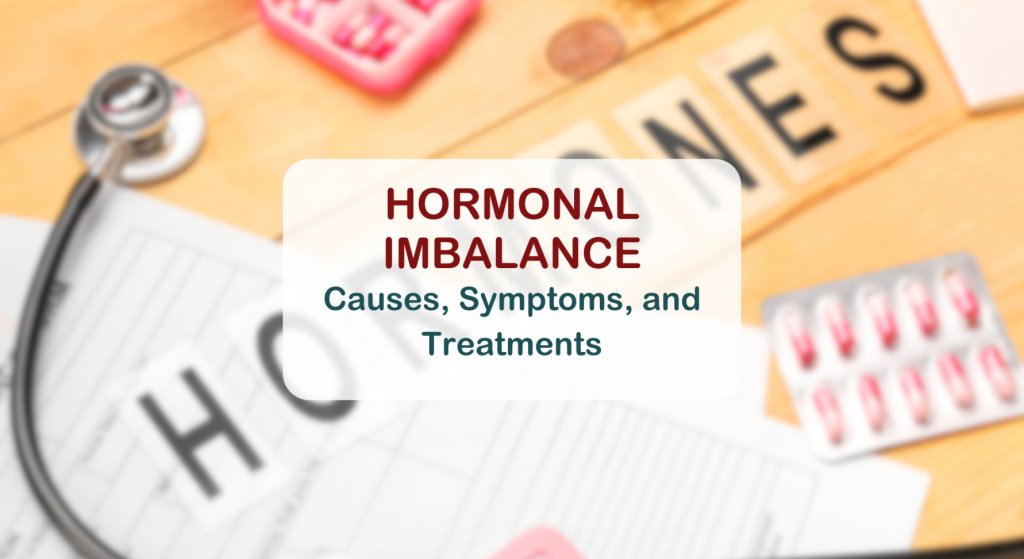
Hormonal Imbalance
Causes, Symptoms, and Treatments
Hormones play a crucial role in regulating various body functions, from growth and metabolism to mood and reproductive health. When hormone levels are disrupted, it can lead to a range of health issues collectively referred to as hormonal imbalances. Understanding the causes, symptoms, and treatments of hormonal imbalances is essential for maintaining overall health and well-being.
Causes of Hormonal Imbalances
Hormonal imbalances can result from a variety of factors, including:
- Stress: Chronic stress can lead to the overproduction of cortisol, the body’s primary stress hormone. Elevated cortisol levels can disrupt the balance of other hormones, such as insulin and thyroid hormones.
- Diet and Nutrition: Poor diet and nutritional deficiencies can impact hormone production and regulation. For instance, inadequate intake of essential fatty acids and certain vitamins can interfere with hormone synthesis.
- Medical Conditions: Various medical conditions can cause hormonal imbalances. These include polycystic ovary syndrome (PCOS), thyroid disorders (such as hypothyroidism or hyperthyroidism), diabetes, and adrenal insufficiency.
- Medications: Certain medications, including birth control pills, hormone replacement therapy, and steroids, can alter hormone levels in the body.
- Aging: Hormone levels naturally decline with age. For example, menopause in women and andropause in men involve significant changes in hormone production.
- Environmental Factors: Exposure to endocrine-disrupting chemicals (EDCs) in pesticides, plastics, and personal care products can interfere with hormone function.
Symptoms of Hormonal Imbalances
The symptoms of hormonal imbalances can vary widely depending on the specific hormones involved and the underlying cause. Common symptoms include:
- Fatigue: Persistent tiredness that is not relieved by rest can be a sign of hormonal imbalances, particularly involving the thyroid or adrenal glands.
- Weight Changes: Unexplained weight gain or loss can indicate issues with insulin, thyroid hormones, or cortisol levels.
- Mood Swings and Depression: Hormonal imbalances can affect neurotransmitter function, leading to mood swings, anxiety, and depression.
- Irregular Menstrual Cycles: In women, imbalances in estrogen and progesterone can cause irregular periods, heavy bleeding, or missed periods.
- Skin and Hair Changes: Hormonal imbalances can lead to acne, dry skin, hair loss, or excessive hair growth in unusual areas.
- Sleep Problems: Difficulty falling asleep, staying asleep, or experiencing poor-quality sleep can be linked to imbalances in melatonin and cortisol.
- Digestive Issues: Hormones play a role in digestion, and imbalances can cause symptoms such as bloating, constipation, or diarrhea.
Treatments for Hormonal Imbalance
The treatment for hormonal imbalances depends on the underlying cause and the specific hormones affected. Effective management often involves a combination of lifestyle changes, medical interventions, and natural remedies
- Lifestyle Changes: Adopting a healthy lifestyle can help regulate hormone levels. This includes maintaining a balanced diet rich in whole foods, engaging in regular physical activity, managing stress through mindfulness practices, and getting adequate sleep.
- Medical Treatments: Depending on the condition, medical treatments may include hormone replacement therapy (HRT), thyroid medications, insulin therapy, or other specific medications to address the imbalance. For instance, women with PCOS may be prescribed birth control pills to regulate menstrual cycles and reduce androgen levels.
- Natural Remedies: Some individuals may benefit from natural remedies, such as herbal supplements. For example, adaptogenic herbs like ashwagandha and rhodiola can help manage stress and support adrenal function. Additionally, phytoestrogenic herbs like black cohosh and red clover may aid in balancing estrogen levels.
- Dietary Supplements: Nutritional supplements can help address deficiencies contributing to hormonal imbalances. Omega-3 fatty acids, vitamin D, magnesium, and B vitamins are commonly recommended to support hormone health.
- Avoiding Endocrine Disruptors: Reducing exposure to EDCs by choosing organic produce, using natural personal care products, and avoiding plastic containers can help protect hormone health.
Conclusion
Hormonal imbalances can have a profound impact on physical and emotional well-being. Recognizing the symptoms and understanding the causes are essential steps in addressing these issues. Individuals can effectively manage hormonal imbalances and improve their overall health by adopting a holistic approach that includes lifestyle changes, medical treatments, and natural remedies. If you suspect you have a hormonal imbalance, it is important to consult with a healthcare provider for accurate diagnosis and personalized treatment
